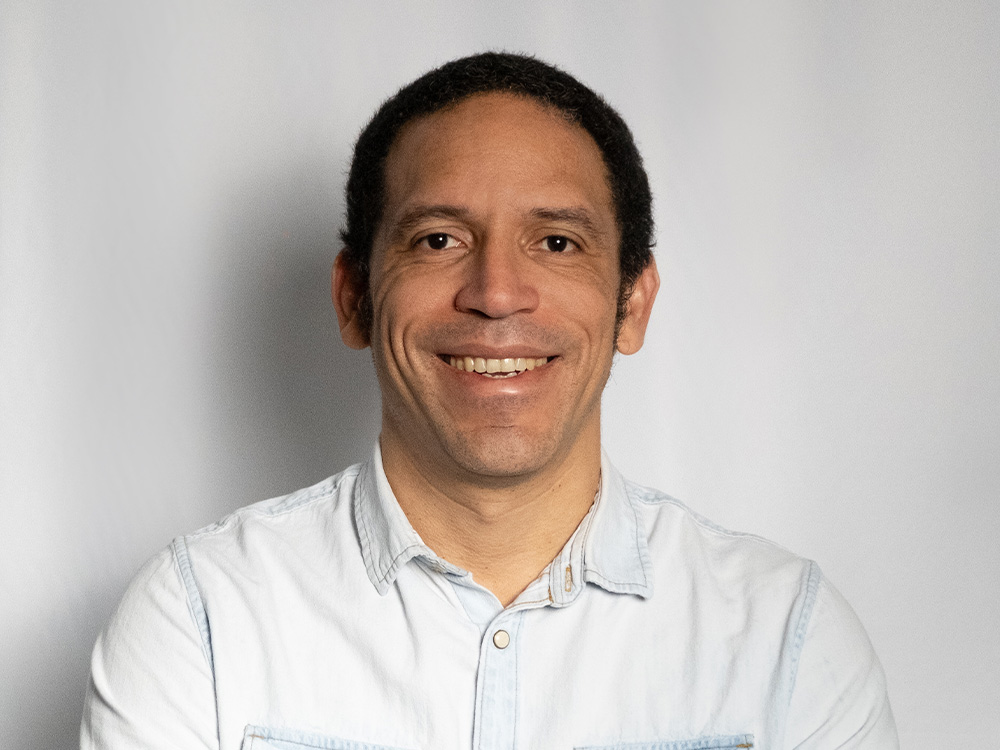
The hard work and innovative thinking of our employees goes into all our projects. They make KWB what it is and are the key to our success. We would therefore like to introduce you to the people behind the projects. This time: Enrique Campbell.
Enrique, what did you study and how long have you been at KWB?
I joined KWB in February of this year, making me a relatively new addition to the team. My academic journey began in my home country of Nicaragua, where I studied Environmental Engineering at the Central American University. Fourteen years ago, I left Nicaragua to pursue my passion for optimizing drinking water supply networks. This passion led me to the Polytechnic University of Valencia, Spain, where I earned a master's and a doctoral degree in Hydraulic Engineering. My doctoral research focused on the sectorization of water supply systems, and during this time, I also worked in the Research and Development Department at Berliner Wasserbetriebe as a Ph.D. employee. After completing my doctorate, I spent five years as an expert in hydraulic simulation within the sewer system department. At KWB, I have been part of the Hydroinformatics team, contributing to the iOLE project, which focuses on intelligent online leak detection in drinking water networks.
How do you support the KWB team with your work and expertise?
One of the primary reasons I was drawn to KWB is its Hydroinformatics Department, renowned for pioneering research in optimizing drinking water supply systems. Since completing my bachelor's degree, I've focused intensively on this field, gaining extensive experience and knowledge. I've participated in numerous projects aimed at reducing leakage and optimizing urban water supply networks worldwide, working across the private and public sectors, as well as in research. This diverse experience has given me a global perspective, allowing me to identify the most efficient solutions to related challenges. It also empowers me to offer tailored solutions for each unique scenario while bringing new insights to the table.
What major societal issues does your work have to do with?
Ensuring the security of drinking water supplies is crucial, especially as climate change, population growth, and competition from sectors like agriculture and industry reduce global water availability. Surprisingly, even in Europe, where environmental awareness is high, approximately 25% of water introduced into the drinking water networks is lost to leaks before reaching consumers. The causes of these losses differ by region, but addressing them is vital. At KWB, we employ state-of-the-art computing technology to reduce these losses and enhance water management efficiency, thereby significantly bolstering the present and future security of drinking water supplies.
Is there a particular research trend or new research topic that you find particularly exciting? What do you see as the crucial issues for the future? What do we need in terms of development?
I see immense potential in integrating artificial intelligence and digital twins into the management of drinking water supply networks. These technologies promise a more agile understanding of network dynamics, optimization of operations, and a reduction in contamination risks. Additionally, they can help develop resilient systems that effectively manage adverse scenarios and the growing pressure on water resources. However, successful implementation requires meeting several prerequisites, such as installing sufficient sensors for real-time data collection on pressure and flow. Currently, the adoption of these technologies by water operators is rare. In my view, a major challenge for research centers like KWB is to validate these innovations through real-world case studies, in collaboration with water utilities. This approach could increase the attractiveness of these solutions to other water operators.
Lifelong learning: How do you keep up to date and educate yourself in your field of research?
Since joining KWB, I have been deepening my understanding of object-oriented programming in Python and data science daily. While I've worked with programming languages in past roles, this experience is far more advanced. It presents a significant challenge that demands both patience and perseverance. I rely heavily on learning platforms like Udemy and DataCamp, along with specialized books. However, the most valuable aspects are knowledge exchange with colleagues and, of course, consistent practice.
What are you particularly proud of at KWB?
Being accepted at KWB was a profound honor, as it meant joining a dynamic, diverse, and globally esteemed team of researchers dedicated to addressing one of the world's most critical challenges—water. I take immense pride in contributing to the organization's impactful work.
What do you do when you are not at KWB?
I cherish spending time with my partner and family and have a passion for reading. Recently, I've been engrossed in the works of Yuval Noah Harari. To stay active, I enjoy engaging in sports, particularly swimming and jogging.
Block error: "Call to a member function intendedTemplate() on null" in block type: "references"

